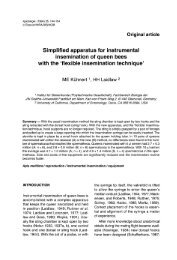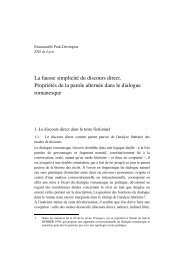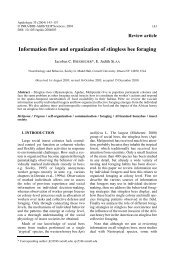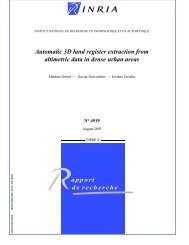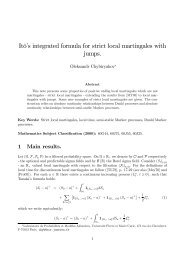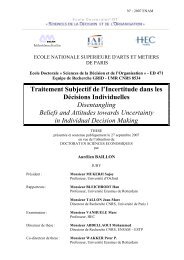Itineraries of Palestinian refugees: Kinship as resource in emigration.
Itineraries of Palestinian refugees: Kinship as resource in emigration.
Itineraries of Palestinian refugees: Kinship as resource in emigration.
You also want an ePaper? Increase the reach of your titles
YUMPU automatically turns print PDFs into web optimized ePapers that Google loves.
halshs-00342285, version 1 - 28 Nov 2008<br />
Lebanon after 1991, Ayman's father answered: "All my children were study<strong>in</strong>g at the<br />
university at this period, <strong>in</strong> Iraq it w<strong>as</strong> cheap and open to Arab students. Here <strong>in</strong> Lebanon,<br />
it would have been impossible. Fees are too expensive for <strong>Palest<strong>in</strong>ian</strong>s. So we decided to<br />
stay there until they all got their diploma".<br />
Until 2000, Ayman's family rented an apartment for $30 a month, and the money<br />
sent by his brother w<strong>as</strong> sufficient to live on. But by 2001 rent dramatically <strong>in</strong>cre<strong>as</strong>ed for<br />
foreigners, and shot up to $150 a month. His younger sister graduated <strong>in</strong> 2001. His<br />
parents decided to come back to Lebanon, s<strong>in</strong>ce liv<strong>in</strong>g <strong>in</strong> Baghdad had become both more<br />
difficult and more expensive. In Lebanon, they settled <strong>in</strong> Al Buss camp where Ayman's<br />
grandmother had a house. Ayman decided not to come back with his family because he<br />
had just married an Iraqi. He tried to f<strong>in</strong>d a job <strong>in</strong> the Baghdad hotels, but faced<br />
discrim<strong>in</strong>ation: "Once, I entered an hotel and I <strong>as</strong>ked for a job. The manager told me:<br />
why do you look for a job here <strong>in</strong> Iraq? Aren't you <strong>Palest<strong>in</strong>ian</strong>? Why don't you go back to<br />
your country. You have signed the Gaza and Jericho agreement…"<br />
He moved with his wife from Baghdad to Mosul, her city <strong>of</strong> orig<strong>in</strong> where life w<strong>as</strong><br />
cheaper and where he could f<strong>in</strong>d help from his wife's relatives. He found a precarious job<br />
<strong>as</strong> a dried fruit salesman. Up until 2002, he could get his residency permit because his<br />
wife w<strong>as</strong> Iraqi. In 2003, when he <strong>as</strong>ked to renew his permit, he w<strong>as</strong> told that the law had<br />
changed and that he had to obta<strong>in</strong> a work contract first, and then <strong>as</strong>k for a residency<br />
permit. He managed to f<strong>in</strong>d a work contract <strong>in</strong> Mosul but never got the residency permit.<br />
In February that year he had to leave Iraq with his wife and two children and come back<br />
to Lebanon. Once there, he went to his family’s house <strong>in</strong> Al Buss camp, the only place he<br />
could live. However, he did not f<strong>in</strong>d a job. As a <strong>Palest<strong>in</strong>ian</strong> refugee <strong>in</strong> Lebanon, he is not<br />
allowed to work 13 . He tried to f<strong>in</strong>d a job <strong>in</strong> Beirut and <strong>in</strong> other cities <strong>in</strong> Lebanon. His<br />
13 <strong>Palest<strong>in</strong>ian</strong> <strong>refugees</strong> face huge difficulties <strong>in</strong> enter<strong>in</strong>g the Lebanese labor market. "The<br />
prohibition for <strong>Palest<strong>in</strong>ian</strong>s from occupy<strong>in</strong>g certa<strong>in</strong> job functions orig<strong>in</strong>ates <strong>in</strong> the m<strong>in</strong>isterial<br />
dated December15, 1995 [that is] itself an update <strong>of</strong> previous decrees, the first be<strong>in</strong>g apparently<br />
decree n°1/289 dated December 18, 1982. […] The list given by the m<strong>in</strong>isterial decree <strong>of</strong><br />
December, 1995 <strong>of</strong> the salaried pr<strong>of</strong>essions reserved to the Lebanese workforce by the M<strong>in</strong>istry<br />
<strong>of</strong> Labor, is long: 72 jobs and pr<strong>of</strong>essions accord<strong>in</strong>g to some people and 46 to others, such <strong>as</strong><br />
12


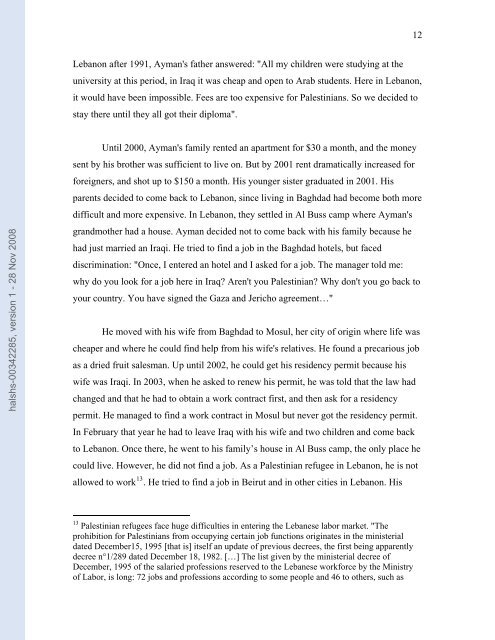
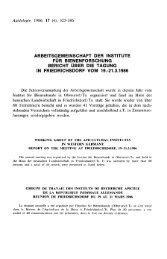
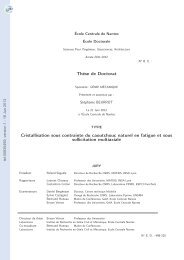
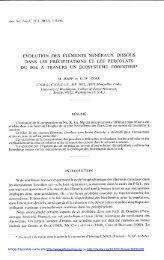
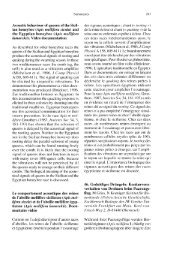
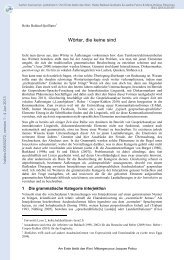
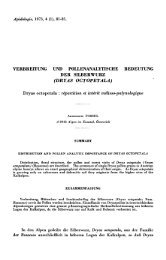
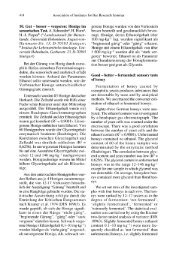
![4 C]-Polyethylenglykol bestimmt, der - HAL - INRIA](https://img.yumpu.com/22454280/1/177x260/4-c-polyethylenglykol-bestimmt-der-hal-inria.jpg?quality=85)
